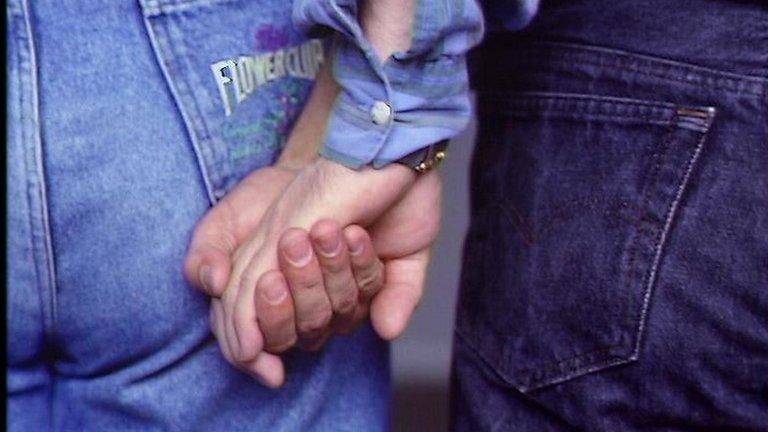Same-sex marriage gets Guernsey States approval
- Published
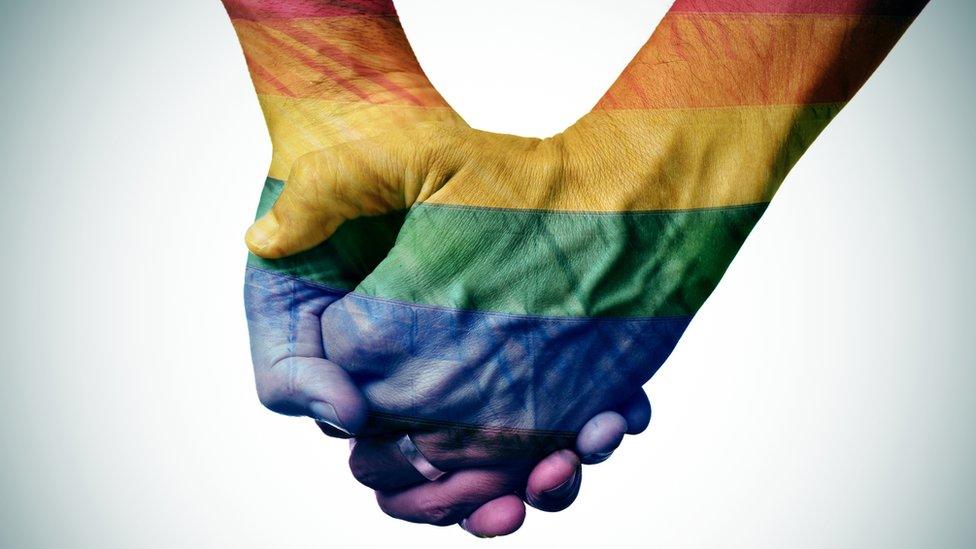
Those opposed to same-sex marriages said it could divide the island's community
Same-sex marriage is set to be introduced in Guernsey after a vote by the island's government.
Two alternative options for introducing same-sex civil partnerships or bringing in a single legal form for all - Union Civile - were rejected.
The move to introduce same-sex marriage was approved 37-7.
It is not clear when the legislation, which will be voted on separately, will come back to the States or when the law will come into effect.
A Policy Council spokesman said it depends on the "priority given to the legislation" and time needed to draft it.
He said at the earliest this "would not be before 2017".
Ellie Jones, from the charity Liberate, said it was an historic day for Guernsey and that most of the comments in the States debate had been "extremely positive".

Same-sex marriages
In 2001 the Netherlands became the first country to allow same-sex marriages
They are now legal in more than 20 countries
Same-sex marriage was legalised in England and Wales in March 2014 and Scotland since December the same year
Jersey has approved the drafting of legislation to permit same-sex marriages from 2017

Deputy Hunter Adam, who was one of those who proposed Union Civile, said: "Introduction of same-sex marriage at this time could be considered by some as a step too far."
He said the issue had raised "strong emotions" and had the potential to cause "division within the community".
Deputy David De Lisle, who suggested civil partnerships, said like England and Wales, the island should take it "one step at a time" to avoid creating a "divide in the community".
The motions were heavily defeated 4-40 and 7-37 respectively.
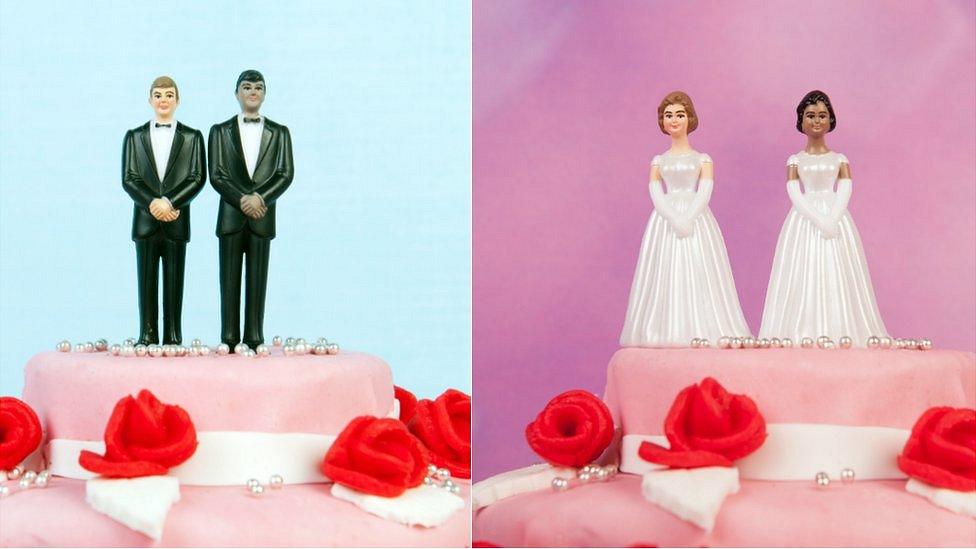
Same-sex marriages are legal in more than 20 countries
Chief Minister Jonathan Le Tocq said the Policy Council had considered all three options before deciding to propose same-sex marriage.
He said: "[It is] more likely to attain international recognition as it brings Guernsey into line with other neighbouring jurisdictions."
Deputy Le Tocq said it was a matter of "equality" and providing couples with the "same legal benefits and protections".
He described the current marriage law, which dates to 1919, as "highly and unnecessarily confusing, ambiguous in places and certainly ripe for reform irrespective of other issues".
- Published1 June 2015
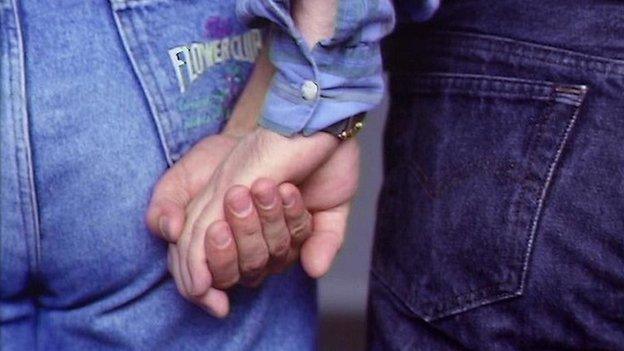
- Published29 May 2014
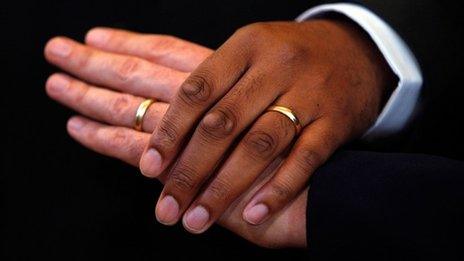
- Published15 May 2015
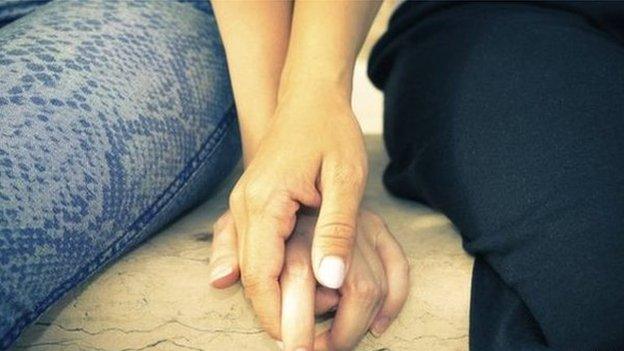
- Published9 June 2014

- Published15 January 2014
